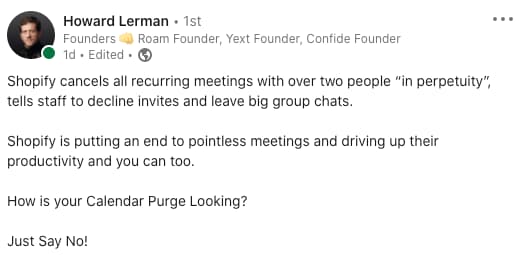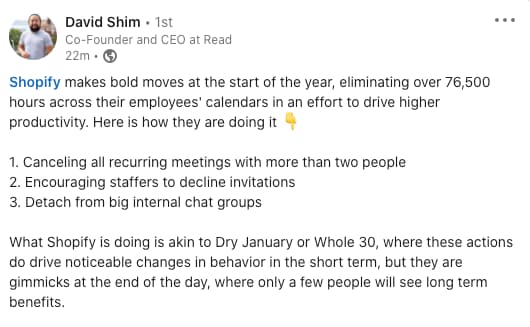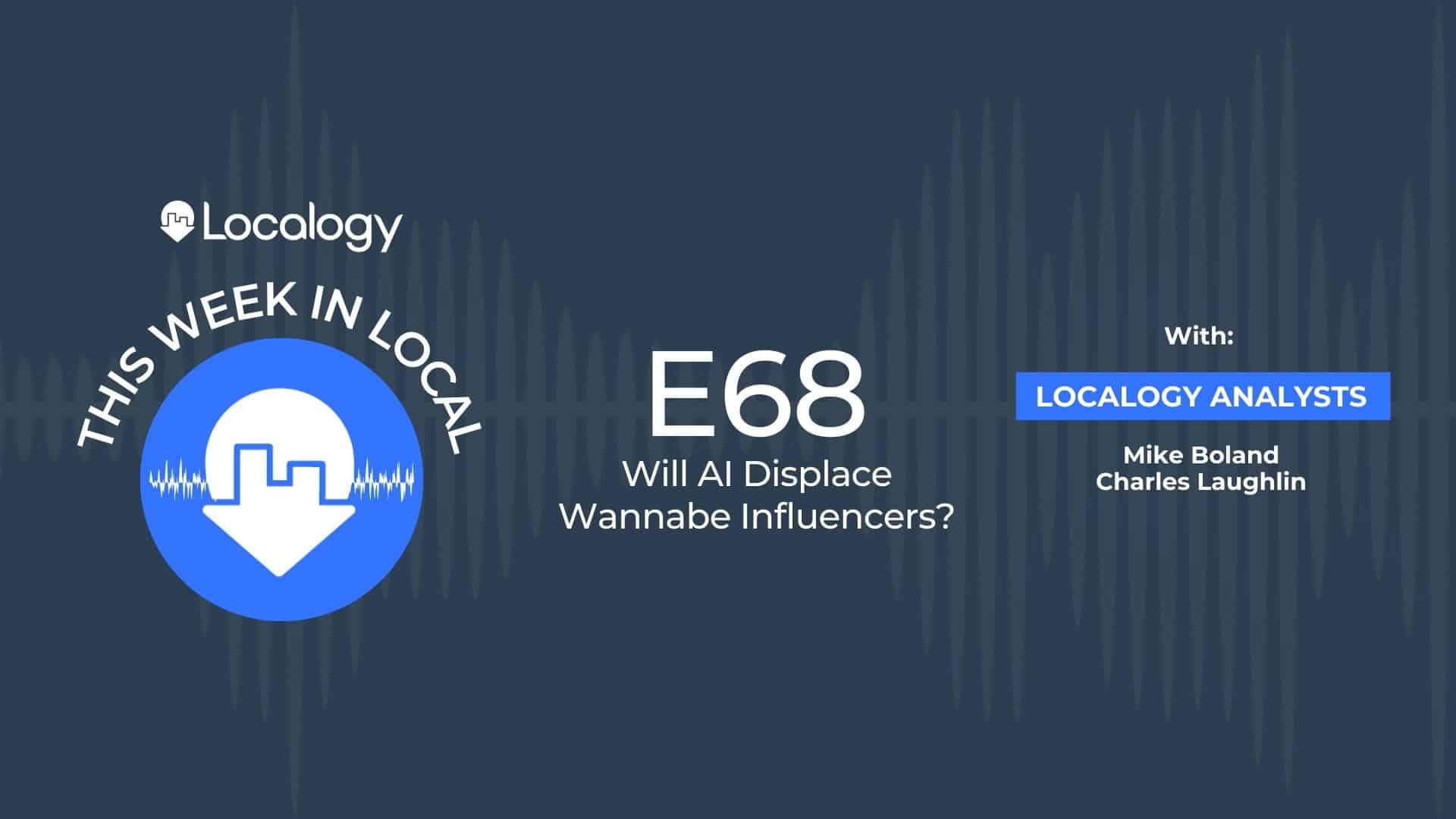I don’t know about you, but my LinkedIn feed over the past day or so has featured a collective “Hell Yeah!” from the usual suspects among business influencers (in our space at least) over Shopify’s recent edict aimed at killing one of the more annoying features of the business life of knowledge workers. Who said, “Recurring Zoom meetings”? Well, if you did, you win.
Multiple reports this week say eCommerce platform Shopify kicked off the new year by eliminating all previously scheduled recurring meetings with three or more people. The company also imposed a two-week “cooling-off period” before any recurring meeting can be rescheduled. Shopify also imposed a new “meeting free Wednesday” policy.
“No one joined Shopify to sit in meetings,” Shopify COO Kaz Nejatian wrote in the memo announcing the new rules, according to CNN Business.
Nejatian reportedly urged employees to think very critically before deciding to re-impose any recurring meeting. In the same memo, he also empowered employees to cancel any meetings they do not consider necessary.
Praise Erupts on LI
Some familiar names soon weighed in on LinkedIn to offer praise and celebrate Shopify’s embrace of a freer, more productive, and meeting-free 2023.
For example, Yext and Ro.am founder Howard Lerman was brief but effusive.
Shopify is putting an end to pointless meetings and driving up their productivity and you can too,” Lerman wrote. “How is your Calendar Purge Looking?”
And former Foursquare CEO and Read AI co-founder David Shim also flew in with a LinkedIn post on the topic. He started by praising the move. Shim added that improving productivity requires deeper changes.
“What Shopify is doing is akin to Dry January or Whole 30, where these actions do drive noticeable changes in behavior in the short term,” Shim wrote. “But they are gimmicks at the end of the day, where only a few people will see long-term benefits.”
This move by Shopify is notable for the likes of Lerman and Shim, bot of whom are building com[panies using new technology to solve an old problem. Workplace effectiveness.
Lerman’s Ro.am is a future-of-work platform that aims to serve as an operating system for the hybrid workplace. Or the “Cloud HQ” as Ro.am describes it. The media has often pitted Ro.am against Zoom. It’s a comparison that Lerman seems to relish.
“The big problem with Zoom,” Lerman told CNBC’s Andrew Ross-Sorkin last year, “is that things that should take two people five minutes to do today are now scheduled for five people on a 30-minute call next week.”
Ro.am’s answer is a platform that encourages 1:1 meetings that last 8:34 on average.
And Shim’s Read AI offers a set of tools designed to make meetings more robust, efficient, and productive.
Future of Work Focus
Two of the biggest names in Local are trying to make work more productive and enjoyable. That says a lot about the need. As does Shopify’s edict this week.
Both Ro.am and Read were founded in 2021. That means both companies were built in the wake of the collective experience of virtual and hybrid work. And the dominant feature of that experience has been the online meeting.
Will we see more future-of-work startups emerge in 2023?
Howard Lerman will be a speaker at the upcoming Localogy 2023 conference in Coronado Bay, CA.







